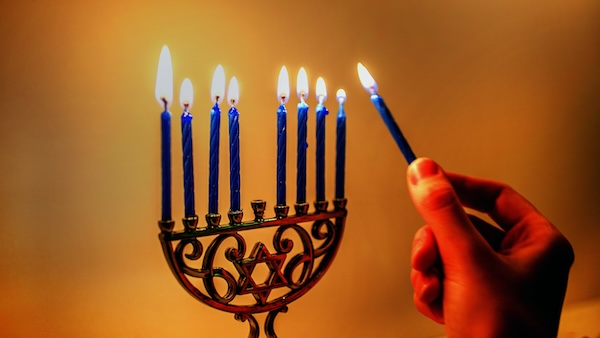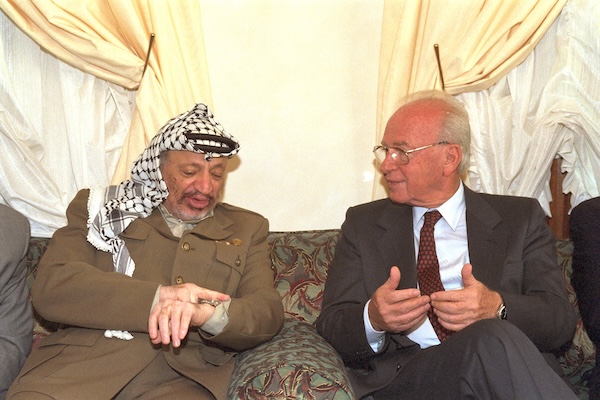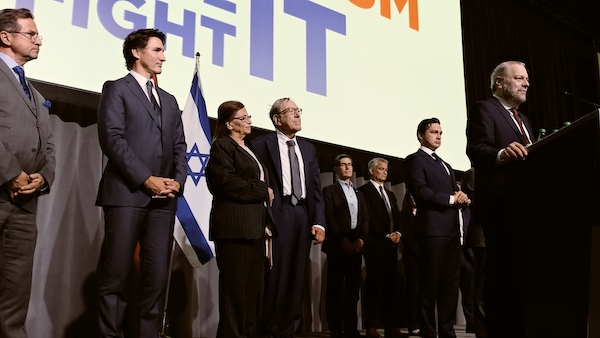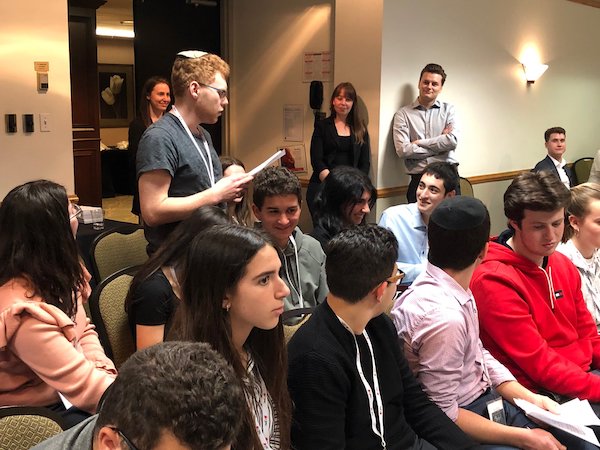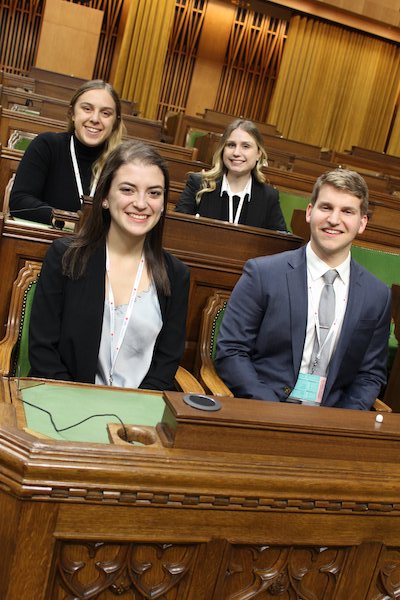Selina Robinson resigned Monday as British Columbia’s minister of post-secondary education and future skills. She also announced she would not seek reelection as the member of the Legislature for Coquitlam-Maillardville – though she said the latter was a decision she had made earlier.
The resignation Monday afternoon was the culmination of a remarkably speedy controversy that erupted late last week, after video circulated of Robinson, during a B’nai Brith Canada panel discussion, referring to pre-state Israel as a “crappy piece of land with nothing on it.” That she qualified the statement immediately, saying “there were several hundred thousand people, but, other than that, it didn’t produce an economy, it couldn’t grow things, it didn’t have anything on it,” is cut off from almost all the video clips.
The language choice was problematic and careless, no question. The Zionist movement has often been criticized for consciously or unconsciously overlooking the presence of existing populations in the land that became the modern state of Israel. One of the original slogans was: “A land without a people for a people without a land.” Robinson certainly knows this history.
What she meant – as she clarified again after the controversy erupted – was that the land had few if any natural resources or economic development. There is nothing historically inaccurate about that. Not only did Palestine not have an abundance of natural resources but, for hundreds of years, it had been an ignored piece of a failing Ottoman Empire, then, for two decades, an abused outpost of British colonialism. Regardless, the way in which Robinson spoke is not a fair or productive way to talk about a land that clearly (so clearly) means so much to so many people. Resources, economic or otherwise, are not the markers of the inherent value of a land or its significance to Indigenous peoples or anyone with a close relationship to place. That said, the feverish response to her words has been out of proportion. There is a world in which her clarification and apology would have sufficed. But, of course, this is politics.
And it is more than just politics. It is Israel and Palestine politics – and that is a particularly vicious game, even here in peaceable Canada. Annamie Paul, former head of the Green Party of Canada, learned tragically what can happen to a Jewish political leader who dares to take a nuanced position (or, really, anything but a wildly anti-Israel approach) to Middle East affairs. Some of us feared Robinson’s principles on this front put a similar target on her back. We’ve been proved right.
Robinson has been an outspoken pro-Israel voice, never more than since Oct. 7. There is no doubt that some were looking for an opportunity to knock her down – and she stumbled in a bad way, leaving her open to precisely the sort of attack some people were no doubt itching for.
Protesters, who, since Oct. 7, have been ready to mobilize about Israel with any provocation, moved into action. Social media erupted in such performative ferocity one would think British Columbians had suddenly discovered one of our leaders was a member of the Klan.
A major New Democratic Party fundraising gala Sunday night was canceled, apparently because they feared a protest that would distract from the party’s message in an election year. A news conference on Monday on a completely unrelated issue was also canceled, presumably for the same reason.
Groups accused Robinson of “blatant bigotry.” Anjali Appadurai, who ran against the current Premier David Eby for party leader, accused Robinson of “racist views.” Protesters Monday and people on social media accused her of “white supremacy.” After the controversy arose but before she resigned, Robinson had agreed to take anti-Islamophobia training.
It is perhaps most remarkable that the people most loudly condemning Robinson probably intersect significantly with the demographic that contests the widely accepted definition of antisemitism, contending, in effect, that Jews make up false “smears” about bigotry for political gain. This, of course, is precisely what happened to Robinson: an offhand (and, yes, offensive) remark is recast as “Islamophobia” by activists who have been waiting to pounce on precisely this sort of slipup. Not incidentally, it sidelines one of Canada’s few Jewish, pro-Israel elected officials.
The rhetoric being used around whiteness, settler colonialism and vulnerable communities also reinforces narratives about Israel that are deeply troubling and rooted in antisemitism and ignorance. Robinson’s comments, heard through an already flawed lens, produced a result that was all but predetermined by entrenched narratives. This is a disturbing reality, one that hurts more than Jews and their allies. Such abuse of terms like racism and white supremacy offend the serious work we must do as a society to confront these problems. Mobilizing these terms for crude political gain, as they have been against Robinson, undermines the fight against racism.
Robinson, and many in the Jewish community, no doubt feel heartbroken this week. In the long run, though, it is the people of British Columbia who are the losers. They have lost the services of a committed public servant.
More than this, our political culture and the fight against racism in all its forms have been debased.

